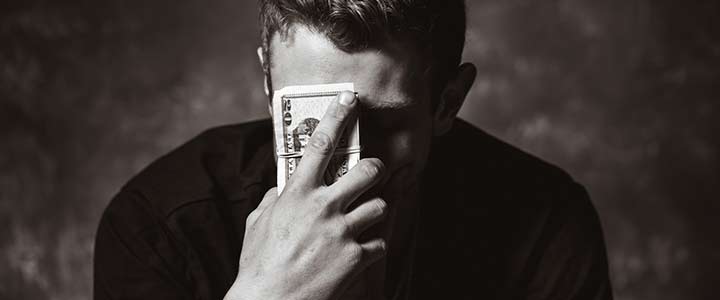One of the growing concerns over the last months has been about the economy taking a turn for the worse. With people isolated at home, many will be unable to work, and even those that are able to work may find themselves in a situation where their job is severely and negatively impacted. For example, people working in the tourism industry have essentially seen the entire industry collapse overnight. It’s understandable that people would fear the worse, as the worse has come true for them.
This means a loss of income, a loss of a way to support themselves and their family, and often forgotten in such times, a loss of purpose, meaning, importance, and self-worth. In such times, it is not only about how to get more money or how to maintain finances. It’s also about how to maintain a healthy mind, a healthy outlook and balance our mental and emotional state. If not, fear, anxiety, and growing sense that we are unworthy will lead us down a dark mental and emotional path that may be more difficult to overcome in the long run.
It’s not just people who are facing a loss of their jobs and income that feel this way. Across the board, people are worrying about:
- how they will manage their finances,
- how their careers will survive,
- what their life may look like afterwards.
- what this means for their future and the future of their family and friends.
We know that money is an essential component to survival, and money can also be an essential component to how happy and content someone can be in life. Not enough of it impacts our ability to survive and meet basic needs, but what is less known is that there is little point to hoard it beyond a certain amount. The general belief being that more money will equal more security and happiness, and in a situation where we fear the loss of our income in a depressed market, the tendency is to find ways to get money and hoard money.
After $60,000 to $75,000, your daily experience in life doesn’t appear to change much, if at all, and contributes very little to how satisfied or happy you can be.
Rather than just focus on money, instead, we have to look at other ways to find and define happiness. We have to look at:
- How freely we can do the things we love and care about
- How much gratitude and sincerity we have within ourselves
- How much self-worth we have
- How much meaning and purpose we can find
We know that money is important, and if you are facing issues, there should be resources and agencies you can turn to for help; but let’s not ignore the other important things we need to also maintain. Let’s not ignore our emotional well-being, or our psychological state. Being cooped up with people for weeks and months now, you may have already seen cracks begin to form in your own family’s mental and emotional state. If you are keeping in contact with friends, you may be hearing about their emotional struggles over money and their anxiety for the future.
How do we help them, and how do we help ourselves?
College of Allied Educators’ accredited Counselling Psychology programmes will train individuals to understand thoughts and emotions; and with the right tools, allow individuals to help themselves and others who may be going through very sensitive and difficult situations.
- POSTGRADUATE DIPLOMA IN COUNSELLING PSYCHOLOGY
Postgraduate Diploma in Counselling Psychology (PGDICP) is a counselling psychology course accredited by the Singapore Association for Counselling (SAC). The part-time Postgraduate Diploma in Counselling Psychology programme focuses on developing and enhancing experiential knowledge and skills through a holistic approach. Some of the subjects covered include Counselling Children, Addiction Intervention, Crisis Intervention, and Family Therapy.
For a FREE COURSE PREVIEW
CALL US at 6533-0031 EMAIL your enquiry to ENQUIRY@ICAE.EDU.SG
or Register for your free preview below:

